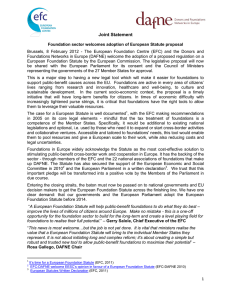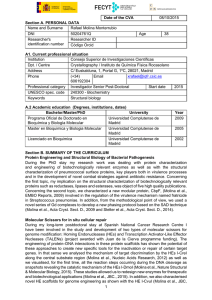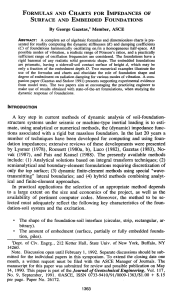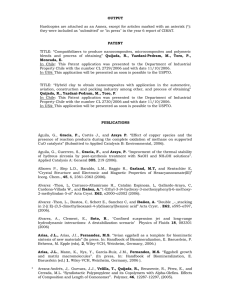1.What is your overall assessment of the Single Market Act? X
Anuncio
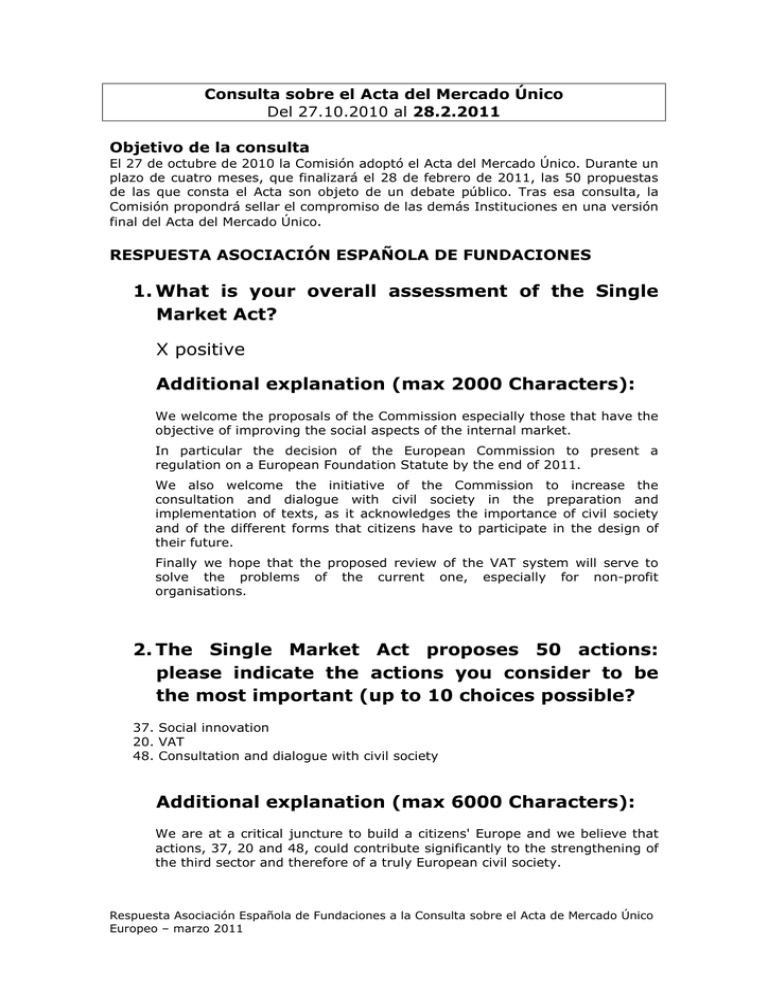
Consulta sobre el Acta del Mercado Único Del 27.10.2010 al 28.2.2011 Objetivo de la consulta El 27 de octubre de 2010 la Comisión adoptó el Acta del Mercado Único. Durante un plazo de cuatro meses, que finalizará el 28 de febrero de 2011, las 50 propuestas de las que consta el Acta son objeto de un debate público. Tras esa consulta, la Comisión propondrá sellar el compromiso de las demás Instituciones en una versión final del Acta del Mercado Único. RESPUESTA ASOCIACIÓN ESPAÑOLA DE FUNDACIONES 1. What is your overall assessment of the Single Market Act? X positive Additional explanation (max 2000 Characters): We welcome the proposals of the Commission especially those that have the objective of improving the social aspects of the internal market. In particular the decision of the European Commission to present a regulation on a European Foundation Statute by the end of 2011. We also welcome the initiative of the Commission to increase the consultation and dialogue with civil society in the preparation and implementation of texts, as it acknowledges the importance of civil society and of the different forms that citizens have to participate in the design of their future. Finally we hope that the proposed review of the VAT system will serve to solve the problems of the current one, especially for non-profit organisations. 2. The Single Market Act proposes 50 actions: please indicate the actions you consider to be the most important (up to 10 choices possible? 37. Social innovation 20. VAT 48. Consultation and dialogue with civil society Additional explanation (max 6000 Characters): We are at a critical juncture to build a citizens' Europe and we believe that actions, 37, 20 and 48, could contribute significantly to the strengthening of the third sector and therefore of a truly European civil society. Respuesta Asociación Española de Fundaciones a la Consulta sobre el Acta de Mercado Único Europeo – marzo 2011 37. We welcome the proposed initiative to present a regulation on a European Foundation Statute by the end of 2011. The contribution of European foundations to socio-economic development in Europe is very important. A European Foundation Statute will enhance the EU legal framework on Foundations and its transparency; will reduce legal and administrative barriers; will make donation procedure smoother, both cross-border activities of particulars and corporations; will contribute to the Economic Integration Process and consolidate a European civil society, in the current globalized context in which threats and common challenges claim for a European approach to get definitively solved. An EFS may also serve as a benchmark for foundations in terms of accountability; and have further positive effects on the behaviour of donors; the corporate sector; and on the European economy. 20. The announced fundamental review of the VAT system, is a unique opportunity to solve the problems that this system poses for non profit organisations. As it was stated on the report of the European Parliament on the Commission communication to the Council, the European Parliament and the Economic and Social Committee on tax policy in the European Union – Priorities for the years ahead - (COM(2001) 260 – C5-0597/2001 – 001/2248 2001/2248 (COS)) which considers that “…. when the Sixth VAT Directive was originally drafted, the particular needs of charities were not taken into account; therefore, despite their role as service providers in key areas of the economy, notably health, education and welfare, they are treated as consumers under existing VAT rules because their activities are either considered non-business or exempt under Article 13(A) of the Sixth Directive; urges the Commission to introduce a similar refund scheme on the grounds that it would be simple to introduce and administer and would not have an impact on the rest of the supply chain” The current review is a unique opportunity to guarantee that the majority of the foundations resources can be used for the achievement of their objectives – which are of public interest – 48. We welcome the proposal to increase consultation and dialogue with civil society in the preparation and implementation of texts. There is a need for setting up a framework which allows continued, transparent and structured involvement of civil society organizations in the process from agenda setting to policy evaluation and reformulation at all levels. The increase of the consultation and dialogue with civil society will lead to a greater involvement of citizens in European processes. Civil society has the capacity to create the common ground necessary for connecting individual interests with public needs. Maintaining this balance is essential to finding solutions to vital challenges that demand public resolution. It is very important to listen to civil society because it is a vital voice for both social and economic development of society. Respuesta Asociación Española de Fundaciones a la Consulta sobre el Acta de Mercado Único Europeo – marzo 2011 3. Does the Single Market Act propose appropriate measures to address the issues/challenges that are identified? Yes Additional explanation (max 2000 Characters): Regarding an EFS, we welcome in particular the decision by the European Commission to present a regulation on a European Foundation Statute by the end of 2011. The Commission has now given attention to the clear evidence for the need and support for a EFS shown by the European feasibility study and the results of the public consultation released in 2009, not to mention the calls repeatedly made by the foundation sector and its representative organisations. It can be stated that an EFS is the most cost-effective policy option for addressing the administrative and legal barriers that foundations face in their cross-border activities. If we analyze existing civil laws we can conclude the existence of legal barriers such as: • Difficulty in transferring the seat to another Member State – either the real seat or the registered seat. • Difficulty in recognizing foreign foundations’ legal personality – recognition procedures exist in several Member States. • Legal insecurity over national recognition of ”general interest” nature or “public benefit” status of resident foundations’ cross-border work. Apart from these legal burdens, we would like to emphasize the following administrative barriers: • Administrative burden and cost to foundations of dealing with a diversity of national rules. • Administrative burden and cost to foundations of setting up several branches in other countries, which requires continuous legal advice. • Lack of a European legal instrument for foundations and lack of knowledge regarding 27-EU national rules on foundations, entail a legal insecurity in relation to cross-border foundation activities and hinder the possibility of transfer of seat or of setting-up branches in other Member states. Respuesta Asociación Española de Fundaciones a la Consulta sobre el Acta de Mercado Único Europeo – marzo 2011 The EFS would be a new, additional, and optional statute, governed by European law. It would allow foundations and funders to set up a European Foundation (EF) with the same conditions throughout the EU. 4. Are there any other issues you consider should be addressed in the Single Market Act in the chapter on “Strong, sustainable and equitable growth for business?” No Which ones (max 4000 Characters): N/A 5. Are there any other issues you consider should be addressed in the Single Market Act in the chapter on “Restoring confidence by putting Europeans at the heart of the single market?” No Which ones (max 4000 Characters): N/A 6. Are there any other issues you consider should be addressed in the Single Market Act in the chapter on “Dialogue, partnership, evaluation: the key to good governance in the single market? No Which ones (max 4000 Characters): N/A Respuesta Asociación Española de Fundaciones a la Consulta sobre el Acta de Mercado Único Europeo – marzo 2011
